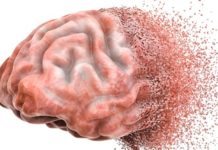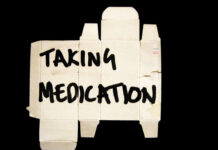Rise of Antipsychotics in Children
Researchers at Johns Hopkins explore the use of antipsychotics in children, finding a dramatic rise in off-label prescribing with little oversight or research into...
Pharmacological Treatment of Schizophrenia: a Fifty-Year Review
Researchers in the U.S. and India reviewed the pharmacological treatment of schizophrenia since its introduction 50 years ago, trying to understand why it "remains...
Majority of Anorexia Patients are Prescribed Psychotropics Despite Lack of Data
Research from the medical schools of Harvard University and the University of Melbourne, reported in the December International Journal of Eating Disorders, found that...
Cancer Risk Higher for Those on Clozapine
The antipsychotic clozapine, considered the “gold-standard” treatment for psychosis, was found to increase the risk of blood and lymph system cancers.
FDA Warns About New Impulse-Control Problems Associated With Abilify
Yesterday, the US Food and Drug Administration (FDA) released a warning that the antipsychotic drug aripiprazole or Abilify is associated with compulsive and uncontrollable...
Wunderink: Antipsychotics Can Be Tapered Safely Without Increasing Relapse Risk
Tapering antipsychotics slowly and with supported decision-making may improve care for patients with psychosis.
Therapy Without Drugs May Ward Off Psychosis
A double-blind, randomized, placebo-controlled study comparing outcomes from risperidone, cognitive therapy, and supportive therapy in a cohort of 115 at-risk young adults over a...
The Case Against Antipsychotics
This review of the scientific literature, stretching across six decades, makes the case that antipsychotics, over the long-term, do more harm than good. The drugs lower recovery rates and worsen functional outcomes over longer periods of time.
APA Recommends Reducing Antipsychotics for Children and Elderly Without Psychosis
The American Psychiatric Association, as part of the American Board of Internal Medicine's "Choosing Wisely" initiative, released new practice guidelines yesterday that advise against...
Why the Delay Between Psychotropics’ Immediate and “Therapeutic” Effects?
Writing in Neuron that antipsychotics' "functional consequences and the subcellular sites of their accumulation in nervous tissue have remained elusive," researchers from Germany and...
Anticholinergic Psychiatric Drugs Linked to a 50% Increase in Dementia
People who take anticholinergic drugs, such as antidepressants and antipsychotics, are at a 50% higher risk of dementia.
“Antipsychotic Use in Youth Without Psychosis: A Double-edged Sword”
This month’s issue of JAMA Psychiatry ran an editorial commenting on recent research revealing that the majority of youth prescribed antipsychotics have not been diagnosed with a mental disorder.
The BBC, Harrow, and a Public Left in the Dark
The recent report by the BBC on medication-free treatment in Norway, when viewed in conjunction with the media silence on Martin Harrow's latest publication, reveals why the public remains misinformed about the long-term effects of antipsychotics.
Non-Drug Therapies Outperform Drug Therapies in Preventing Relapse
In a study of 597 outpatients who were perceived as likely nonadherers to oral antipsychotic interventions, Spanish researchers found that relapse was lower in...
Discontinuation of Antipsychotics Improves Cognitive Functioning
A study, recently published in Psychological Medicine, examined the cognitive functioning of individuals with schizophrenia who discontinued antipsychotics, and those who maintained their antipsychotic...
Many Service Users Interested in Decreasing Antipsychotic Use with Professional Help
New research examines service user attitudes on discontinuing and reducing antipsychotic drugs.
Danish Study Finds Better 10-year Outcomes in Patients Off Antipsychotics
Study finds that 74% of patients with a psychotic disorder off antipsychotics at end of 10 years are in remission.
Exploding Myths About Schizophrenia: An Interview with Courtenay Harding
The Vermont Longitudinal Study, led by Courtenay Harding, belied conventional beliefs about schizophrenia by showing remarkably good outcomes for patients discharged in the 1950s and '60s.
Review Questions Long Term Use of Antipsychotics
Patients who recover from a single episode of psychosis are often prescribed antipsychotics long-term, despite a lack of evidence for this practice
Psychotropics During Pregnancy Raise Risk of Babies with Low Birth Weight, Hospitalizations
The use by mothers of any of four major classes of psychiatric medications during pregnancy significantly raises the risk that their babies will be born with low birth weights and will need to be hospitalized.
Increasing Use of Antipsychotics for Disruptive Behavior in Children
Canadian researchers systematically reviewed all randomized controlled trials of second-generation antipsychotics (SGAs) and placebo in the treatment of disruptive behavior disorders in children, finding...
Antipsychotics Associated with Severe COVID-19 and Fatal Outcomes
A new study has found a strong association between antipsychotic drugs and higher rates of severe cases of COVID-19.
Researchers Call for Reappraisal of Adverse Mental Effects of Antipsychotics, NIDS
In a study published yesterday, researchers from the Nippon Medical School in Tokyo bring attention to a condition known as neuroleptic-induced deficit syndrome (NIDS)...
Antipsychotics Even Riskier For The Elderly Than Previously Thought
Antipsychotic medications that are commonly being used to help control behaviors in elderly people with dementia seem to be causing premature deaths at high rates.
Service Users Report Psychiatric Professionals as the Least Helpful Factor in Quitting Antipsychotics
A new study published in Psychology and Psychotherapy: Theory, Research and Practice finds that psychiatrists and other doctors are the most unhelpful factor for...





















